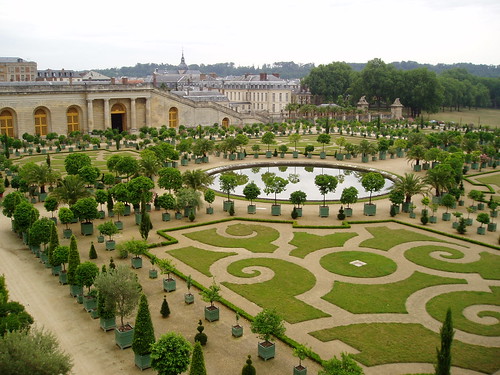Gardening is a relaxing hobby that can be enjoyed by people of all ages. Family and friends can spend an enjoyable afternoon together, working in the garden. Children will be amazed to watch seeds grow to become vegetables and flowers. Horticulture can also help appreciate outdoor life and nature. This article contains the information that you need for you and loved ones to enjoy growing a gorgeous garden together.
Think about planting your seeds in indoor pots and then transplanting them to your garden once they become seedlings. This can give your seedlings the advantage they need to survive and reach adulthood. The period between plantings will also be shorter. Once the fully matured plants are removed, the seedlings can be planted.
Try using annuals and biennials to add color to your flower beds, and brighten them up. Biennials and annuals that grow quickly can add color to a flower bed, plus they permit you to modify the way the flower bed looks each season and each year. They are very helpful when trying to fill in gaps between shrubs and perennials in an area that is sunny. A variety of flowers that will thrive in your region are available.
Keep your plants thriving through the winter by bringing them inside. Maybe you’d like to save the most expensive plants you have or the most resistant. Be careful not to damage the root system as you dig up the plant, and place it in a pot.
To get the best results, you must use the right soil. The soil that is already in your garden might need amending, depending on the particular plants that you want to grow. It is also possible to set aside a portion of your garden to include just one type of soil.
Coffee Grounds
If your soil has high alkaline amounts, mix some coffee grounds into it. Using coffee grounds is a low-cost way to increase the acidity of the soil. After doing so, you will notice that your greenery and garden will be colorful and fresh.
Plan your garden before you plant it. Planning gives you a map of your garden. When your plants begin sprouting and all look alike, you can refer to your plan to remind yourself of which plants are which. In addition, your small plants or groups of plants that are limited in number won’t become lost if you have a large garden.
Irrigate your garden efficiently. You can save time by using soaker hoses when watering plants. By doing this, you won’t need to water your plants individually. Make sure that your water pressure is set to low, so that no harm will come to any tender plants. Let it water your garden for a few hours, so you’re available to do other stuff.
When gardening outdoors, you must always wear sunscreen and appropriate attire; this will help to protect you from sun damage. Sunglasses, a nice shady hat, and sunscreen are very helpful. If you properly protect yourself from the sun, you will not get a sun burn and you will decrease your risk of getting skin cancer.
Preparing a plot for planting a perennial garden can be done quickly and without difficulty. With a garden spade, slice under the dirt then flip it over. Next, spread out wood chips several inches deep. Let the area have about two weeks, then dig it and plan the new perennials.
Sprouting seeds need less warmth than before. After growth begins, you can remove plants from any excessive heat sources. Take any plastic film off of your containers because they hold in heat and humidity. Watch your seeds carefully to know when you can take these steps.
Regularity is the key to keeping your organic garden in order, don’t let your list of chores pile up. Even if you end up being too busy to do garden chores every day, do small tasks that will help you avoid having to do large tasks when you finally do have time. If you’re outside with your pet, try to remove weeds when your pet is doing his business.
A useful technique for organic horticulture, is to gently disturb your seedlings by using your fingers or a piece of cardboard one or two times daily. While it seems a little odd, it has been reported that this can encourage plant growth.
Organic horticulture is more difficult than horticulture with chemicals, but you will reap a greater reward. Though the use of chemicals has its own benefits, organic farming is a rewarding experience that ends with natural, healthy produce.
Consider the value of the crops you choose to grow. That being said, a plant that is valuable to one person may be of no value to another. Growing crops that are expensive at the grocery store will offset some of the money spent growing them. You should plant a garden that is full of the fruits and vegetables you love, so that you can enjoy the produce that is yielded through your efforts.
To create your own low cost compost, use uneaten fruit peelings and flesh. These food products contribute to a terrific natural compost for your garden, helping your plants grow beautifully and healthfully at nearly no extra cost to you.
If you have a problem with bugs in your organic garden, give garlic a try by planting several garlic bulbs around where the problem is occurring. Pests often dislike the smell of garlic and go out of their way to avoid it. Garlic should be planted around the perimeter of your garden, as well as near any plants that are known to attract insects. A side benefit of placing the garlic in the garden for this purpose is the fact that you can eat it.
In conclusion, whether you are gardening on your own or with friends, the tips you’ve read above are sure to be helpful. Horticulture can become a treasured family activity. You can even invite your friends! Regardless of whether you garden alone or in the company of others, these tips are sure to be a valued part of your horticulture technique.

